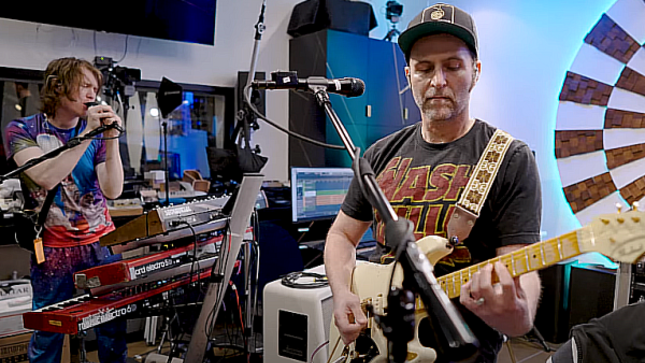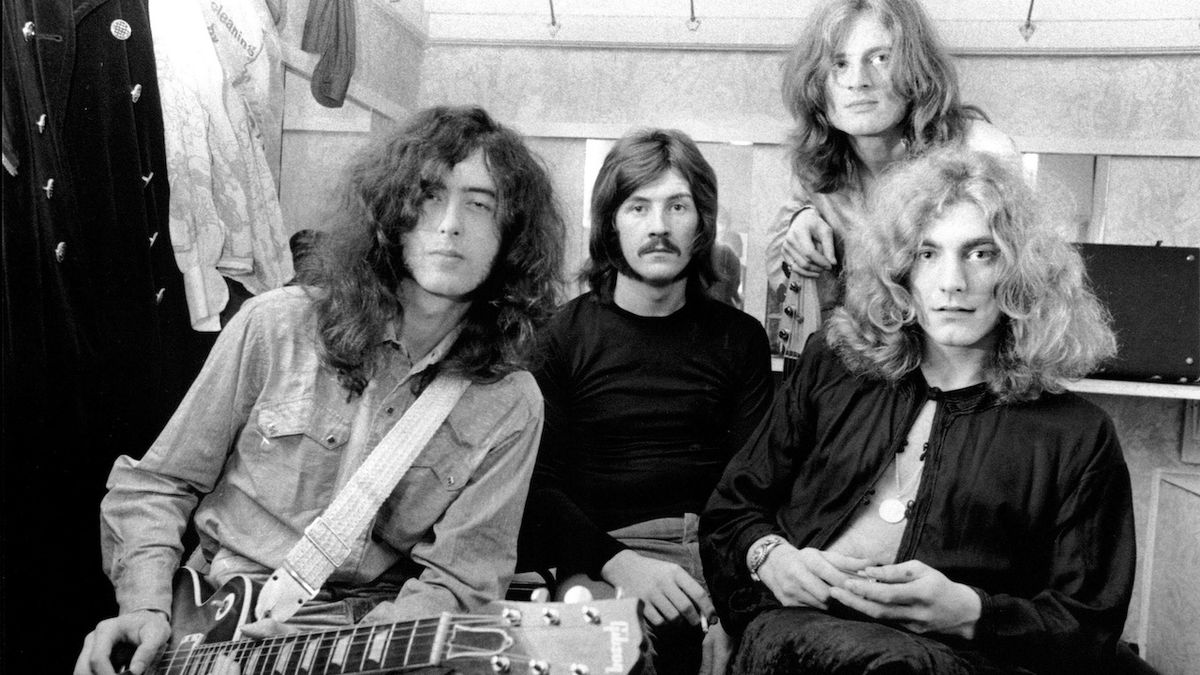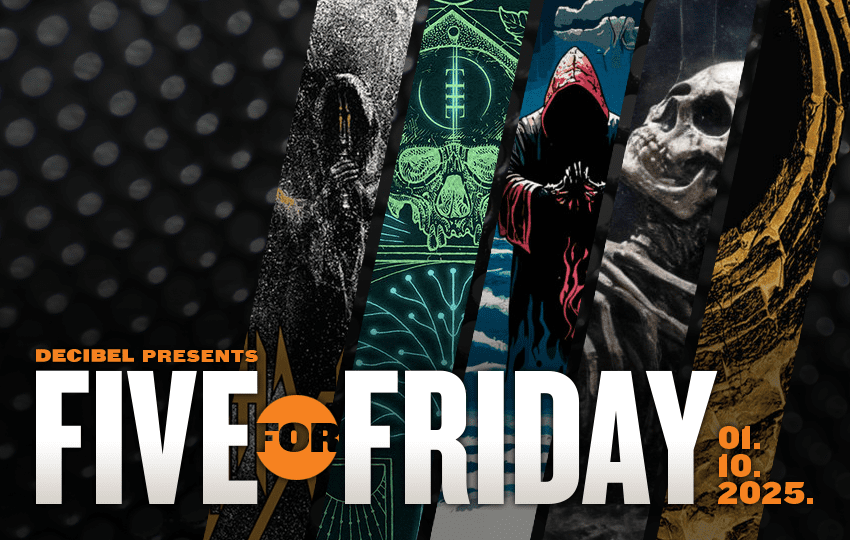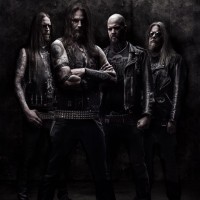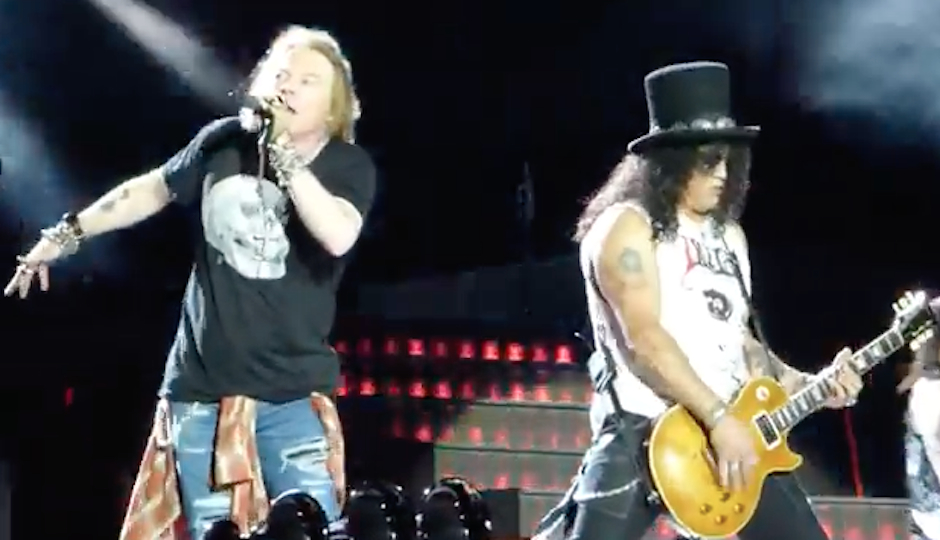From bombastic and extravagant compositions through to deep-thinking concepts and conspiracies which inform much of their lyrics, Muse has often married mainstream sensibilities with the scope and grandeur of prog rock. With an ever-evolving, metamorphasising sound too, the Devonshire trio have always ripped up their rule buck in favour of new, often over-the-top ideas with each new album. Across a near-three decade career that has seen them write 10-minute apocalypse operas, three part symphonies and got their Floyd on, here are just 10 moments where Muse have let their progressive influences lead the way…
Butterflies & Hurricanes
Arguably the band’s most far-out single from their stratospherically successful Absolution record, Butterflies & Hurricanes pertains pain and beauty in equal measure, launching off a repetitive two note phrase. It builds and builds, orchestrations sweeping cinematically into the picture with a choir of Matt Bellamys wringing out courage finding lyrics. Yet its constant rise is ebbed by a leftfield, winding piano interlude before exploding into its finale as Bellamy’s Rachmaninoff influences prompt a stunning detour.
Space Dementia
“Space Dementia is the term NASA Used for what happens if you’re left out in space for a long time,” says Bellamy, “because if you truly conceptualise the situation of being there and looking back at Earth, it can drive you mad.”
Betwixt spiralling pianos, a punch-drunk, fuzz lavished bassline and Bellamy’s near-psychotic operatics, floating in zero gravity is that sense of madness. Antagonised, uneasy and uncertain, it unfurls through a pianos, with the 20th anniversary remix heightening its tension with weeping strings. Enormous, crushing guitars come in for an outro designed to be a stark contrast from its earlier section as they drag you towards its ominous conclusion.
Animals
The 2nd Law is arguably Muse’s most experimental album. A melting pot of so many influences, Queen and Floyd-isms are bedfellows with dubstep, classical, jazz and more across what are very ambitious reinterpretations of the band’s blueprint. Animals, pulsating in 5/4 time and underpinned by a grooving bassline, packs a lot into its short playtime. They flit between time signatures for its dizzying conclusion, which segues from ethereal Pink Floyd to a gorgeous guitar solo and a crunching prog rock riff that, just for a moment, drops into a head bobbing 4/4.
City Of Delusion
2006’s chart topping Black Holes & Revelations is best known for its R&B channelling hit Supermassive Black Hole, Starlight and usual set closer Knights of Cydonia, which leaves City Of Delusion something of a hidden gem. Ricocheting off an Eastern styled chord progression and slowly building strings, its theatrics are amassed with swathing, picturesque orchestrations, and a winding structure iced with a dance-worth-yet-sullen trumpet solo.
The Globalist
A sequel to fan-favourite Citizen Erased (from Origin Of Symmetry and clocking in at just over 10 minutes, the apocalypse opera is full of complexities and Easter eggs. During the song, which is takes in piano balladry, whistled melodies, slide guitars and a monolithic, seven string guitar riff fest, the protagonist discovers a code which starts World War Three. That code consists of lines from the record’s previous seven tracks played backwards, with other ideas inspired by and based off Edward Elgar’s Enigma Variations symphony dotted throughout the song.
Exogenesis Symphony
Resistance may be one of Muse’s more underwhelming albums, but that doesn’t mean it’s bereft of magic moments. Closed out by an awe-inspiring three part symphony, it’s inspired by the concept of pansmeria, where humanity’s last hopes of survival are pinned on astronauts finding a new planet to inhabit. As early as 2008, Bellamy had hinted that the band’s next album would feature a “15 minute space rock solo” and he delivered with a stirring suite inspired by Radiohead as much as Chopin and Strauss.
Take A Bow
The dark, unsettled opening track from Black Holes…, represents a lot of Muse’s strengths in one snapshot in its atypical structure, defiant, anti-corruption messaging and the sheer scale of the piece. Described by Bellamy as a “gothic fairytale” of a song, it lacks a definitive verse or chorus and is instead driven by singular chord progression of arpeggiated keyboards that perpetually changes keys downwards, getting even darker and even more settled each loop.
“Its structure is mathematical,” says bassist Chris Wolstenhome. “Dom’s never played like that, with very jazzy rhythms, slow ones, followed by more chaotic bits integrated into the whole.”
Survival
The official anthem of the London 2012 Olympic Games, the scale of the song they penned for the world’s biggest sporting event is befittingly gigantean. What started as a planned collaboration with Elton John – which was ultimately fruitless – was turned by Bellamy into a gladiatorial powerhouse. Whilst the song polarised fans – and its lyrics are guilty of being a little cheesy – musically, it’s an adventuring, perpetually progressing piece that feels like you’re climbing a mountain, sword in band and fuelled by a lust for glory, with all the pomp and majesty of a good prog song.
The Gallery
There are plenty other songs in the band’s expansive arsenal that could argue their way onto this list – from the prog metal riffage of Reapers to the synth glazed storytelling of The Void. Yet, on The Gallery, Muse step away from the security of their well used tropes for something completely different. A stripped back, piano-led instrumental which interweaves jazzy drum work and eerie theremin textures makes this Origin… era B-side compellingly hypnotic. It saw its live debut earlier this summer, with the song a surprise inclusion on their current tour, but for the prog fans out there, a very welcome one.
Knights Of Cydonia
Whilst this intergalactic spaghetti western extravaganza unites macro sci-fi imaginings with a blend of Ennio Morricone and Dick Dale, the track also pays homage to Bellamy’s father. The songs laser-like tremolo riffing and galloping rhythms are a tip of the hat to The Tornados’ hit Telestar, on which George Bellamy played guitar. With its name inspired by a region of Mars that has piqued many an astronomers interest due to its face-like mountain which is believed to have once stood next to a giant Martian lake, the song’s huge success comes in the spite of the song being through composed, meaning it lacks any clear repeating sections. Instead, it keeps on galloping through the kind of grandiose astral plains that only Muse could create.













